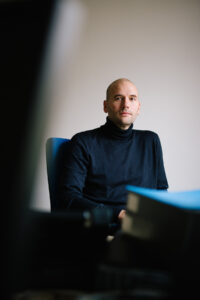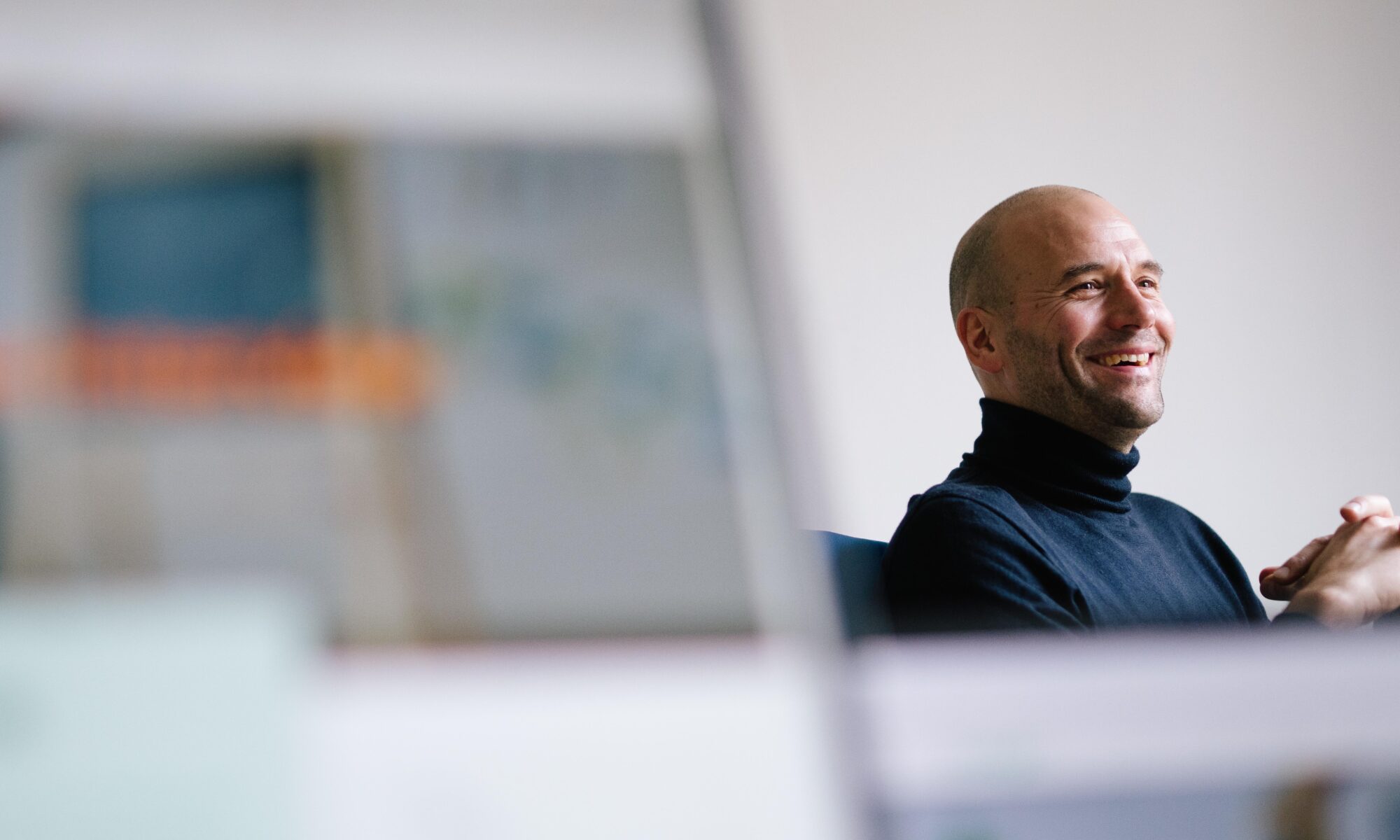An app with smart software and artificial intelligence that can prepare a visit to the doctor or hospital as best as possible? It exists! “Bingli is the Chinese word for anamnesis, the story the patient tells the doctor,” says Tom Van De Putte, alumnus Business Economics at the Faculty of Business and Economics. Together with partner Piet Van de Steen and their ten-member team, Tom has been working on the development of the app since 2015. Due to the coronavirus an ‘isolated’ COVID version was created in record time. Soon, the UZA will have the scoop to be the first emergency department to work with Bingli.
The Bingli team has been working with general practitioners and with the Centre for General Practice at the University of Antwerp. The overall goal: to better prepare patients for a visit to the general practitioner or the hospital.
“A patient often feels stressed before a doctor’s visit: what information is important to mention during a short consultation? As a result, there is a lot of quality and time loss in the interaction between patient and doctor. With Bingli, we want to optimize the whole process by better preparing the patient.”
Meanwhile, specialists can also use Bingli to make consultations more qualitative.
How does it work exactly?
The app asks the patient a large number of questions that he or she can prepare at home. For example, one of those questions is: “Are you taking any medication?” The patient then has time to check everything and provide accurate information. Based on the answer, the app calculates a new question.
“Bingli is a fully dynamic chat bot that is not predefined. It’s a bit like sitting in a doctor’s office. Everything is based on an algorithm and a database that determines a relationship between arguments and diagnoses based on symptoms, lifestyle, age, gender, etc.”
You would think such a database already exists, but it doesn’t. Structured pre-diagnostic data was not available when Tom and his team initially came up with the app.
“When we first started Bingli, we built a large database describing diseases, and the arguments for those diseases. We brainstormed that approach with the Center for General Practice. Together, we also applied for a grant from VLAIO – the Flemish Agency for Innovation & Enterprise – and a GP in training did his Master’s Thesis on Bingli.”
COVID checker
And then COVID-19 hit. The symptom diagnosis database was quickly expanded to include this new condition. Soon came the demand from the government, among others, for a specific COVID checker. ‘Apart from all the other things you are doing, we need something isolated’, it sounded.
“We were in the first wave at that point. People wanted to know what symptoms they’d have if they were infected with COVID, and if their underlying conditions could cause a more complex course of the disease or an admission to intensive care. Triage was needed: who goes to the emergency room, who goes to intensive care? But that information was constantly changing. So in the first wave, we were mainly going to look at which cases required extra attention.”
Gaining crucial time
 During the second wave, the checker was mainly used by general practitioners, to help them decide whether a patient could have a physical appointment or not. If a patient showed symptoms, he or she could schedule a video consultation or go to a triage centre instead. But Bingli can also be used for hospital appointments. The day before a scheduled appointment, the patient receives a link to the Bingli test. With a green score they can enter the hospital, with a red score they can’t.
During the second wave, the checker was mainly used by general practitioners, to help them decide whether a patient could have a physical appointment or not. If a patient showed symptoms, he or she could schedule a video consultation or go to a triage centre instead. But Bingli can also be used for hospital appointments. The day before a scheduled appointment, the patient receives a link to the Bingli test. With a green score they can enter the hospital, with a red score they can’t.
“Our goal ultimately is to improve the doctor’s visit. We work with differential diagnostics. This means that Bingli continuously calculates differential diagnoses, and these become more and more refined. With algorithms and artificial intelligence, the app imitates how a doctor reasons. After ten simulations, that yielded an accuracy of 93 percent. But Bingli cannot replace the doctor; the app only works in a supportive way.”
This also means that the patient does not receive the differential diagnosis, only the doctor. He or she reads that diagnosis in 40 seconds – compared to the standard 5 minutes – and immediately has a very good idea of the patient’s condition. Plus: the information is structured and coded. This means that the doctor no longer has to make a report, but can simply copy and paste everything into the medical file. Another 2 minutes of time saved. And that’s valuable time knowing that a doctor only has an average of 15 minutes consultation time.
“But equally important: the system also learns from the doctor’s feedback. In time, we will be able to triage even better, not only for COVID, but also for diabetic patients for instance too.”
Firsts and awards
Early last year, Bingli received the Lean Innovation Award for most innovative company.
“Our general principle is more efficient hospitals and less stress for patients, so to receive recognition for that from people in the healthcare industry is very satisfying.”
Also a nice bonus: Bingli gained visibility and the team proved that it can switch gears quickly when the need arises.
From MBA to Bingli
As an alumnus in Business Economics, how did Tom actually get into the medical world?
“I’ve worked a lot as a consultant in marketing and communication, the last 15 years mainly for medical companies. My expertise is communication and that is just the problem we want to work on: communication and information transfer that goes wrong.”
In the end, it’s the hospitals that will pay for Bingli, not the patients. Because the profit will ultimately go to the doctors. And not just that, doctors will also get more time to really talking to their patients.
Call: students training to become GPs are always welcome, as are software developers and IT professionals.


